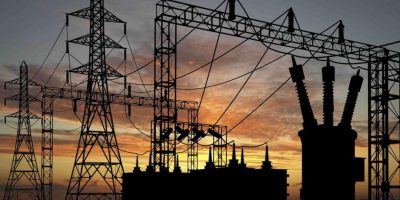Electricity tariff increase imminent as FG reveals fresh plan to remove subsidy

The Federal Government is set to phase out electricity subsidies, with plans for a gradual tariff hike aimed at reducing the financial burden on government expenditures.
Minister of Power, Adebayo Adelabu, made the revelation during a recent visit to the Ibadan Electricity Distribution Company (IBEDC) headquarters.
He said, “As it is today, the Federal Government still subsidises electricity because the current tariff DISCOs are allowed to charge is not cost-reflective.
“This is why the Federal Government spent close to N700 billion in 2023 to subsidise electricity. If tariffs are left at this current rate, it is projected that the government will spend about N1.7 trillion to subsidise electricity. The FG cannot afford that.”
“There must be an upward review of the electricity tariff in order to reduce the amount of subsidy required. If we make the tariff 100 per cent cost-reflective, the burden will be too much on our people.
“We don’t want that. To reduce the burden on our people, it is only a fraction of the tariff review that will be reflected.”
According to the minister, prior to the tariff reassessment, there will be a plan for awareness campaigns and advocacy to support the rationale behind the proposed increase. He clarified that the tariff adjustment would follow a “graduated” approach, where the affluent would face a higher increase, while the less privileged would experience a reduced impact.
Adelabu also stated that “there must be an improved power supply” for the review to take place.
The visit, according to him, is to assess and evaluate electricity infrastructure across the country.
“It also includes visiting the institution that carries the primary responsibility of electricity distribution in the state,” he added.
The minister previously toured key transmission facilities in the state, such as the Ayede 330/132KV transmission substation in Ibadan. Additionally, he mentioned plans to inaugurate solar-powered mini-grids in specific local government areas, overseen by the Rural Electrification Agency (REA).
“I am happy to be here for the first time to meet with the management of IBEDC. I am here to discuss the state of performance in the power sector. Effort to improve its performance is a collective one.”
He noted that the performance of the electricity sector was not satisfactory, hence the need for government and private sector stakeholders to cooperate.
“IBEDC is the largest of the DISCOs in terms of coverage. The consumers’ expectations of us are very high, and we cannot afford to disappoint them.
“President Bola Tinubu, during his election campaign, promised a stable power supply to the people. In his priority areas, power comes first.
“There is nothing we can achieve in terms of economic growth and national development without a reliable electricity supply.”
He said the visit to the Ayede substation established in 1978 was to “look at the possibility of an upgrade and also the establishment of another 330KVA substation in Ibadan to reduce the load on the existing one.
“We are also working on establishing a new 132KVA substation in Eleyele and UI, which we believe will also improve the capacity of the transmission infrastructure.”
In his response, Kingsley Achife, the Chief Executive Officer of IBEDC, acknowledged the minister for his first visit to the company and asked for a correction in the electricity tariff.

